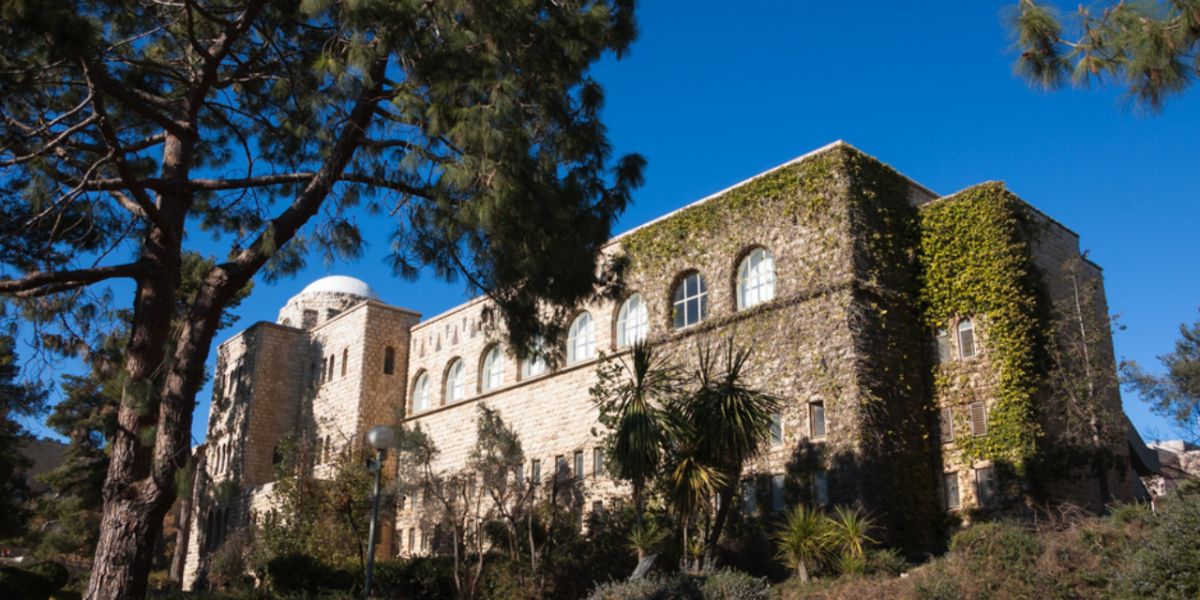
Explore the reasons why this youthful and energetic country is a favored destination for higher education, offering a blend of academic distinction, a lively atmosphere, and appealing career prospects.
Why study in Israel?
Israel, despite its small size and relative youth, boasts an impressive tally of 59 higher education institutions, with 49 of them being public. Within this educational landscape exist universities and research institutes that have gained global recognition for their exceptional quality. Notably, four of these establishments have secured positions within the top 200 of the prestigious Shanghai ranking. The Hebrew University of Jerusalem holds the 77th spot, while the Haifa Technion and the Weizmann Institute in Rehovot share the 83rd rank. Additionally, Tel Aviv University is ranked 43rd in the field of mathematics. The Haifa Technion was even compared to the Massachusetts Institute of Technology (MIT).
Alongside its educational programs, Israel provides students with an environment that nurtures their potential, offering numerous opportunities within the Israeli job market. Notably, a large number of startups are established in the country, often expanding their influence globally. The Technion, for example, has even launched a specialized framework to promote the marketing of scientific and technological breakthroughs.
The Technion in Haifa and the Weizmann Institute stand out as the top-tier higher education institutions for preparing students for these domains. A distinctive aspect of these establishments, which significantly emphasize research and nurturing young talents, is their provision of structures designed for commercialization. These structures effectively accelerate the process of bringing discoveries to the market and ensuring their swift implementation.
It's also important to know that a number of programs are offered in English.
The best channels in Israel
Israeli universities consistently offer a high standard of education, with certain fields standing out for their exceptional quality. Notably, disciplines like computer science, political science, commerce, mining, engineering, and agriculture excel within this educational landscape. Israel has garnered a reputation for its remarkable and diverse innovations in these specific fields, further contributing to its distinction.
Conditions and formalities in Israel
Students interested in studying in Israel should be aware of several formal requirements. Initially, they should select the institution and program that align most closely with their goals. A productive approach to understanding the various options available is to explore the websites of these institutions. Following that, it's crucial to verify whether they meet the admission prerequisites for their preferred school. These requirements differ depending on the specific program and are also outlined on the respective websites. Typically, for admission into an undergraduate program, a bachelor's degree is necessary, along with a psychometric examination. It's a prudent strategy to submit applications to multiple courses and universities individually to enhance the likelihood of securing a spot in one of them. Each institution's application process should be addressed separately. There are various organizations available to assist you in identifying the ideal course for your prospective studies in Israel.
After receiving an acceptance, the next step involves applying for a student visa. This application can be submitted to the Israeli consulate in the applicant's country of residence. Alternatively, the university where they have been accepted might assist with the visa process within Israel. Typically, student visas are initially granted for a renewable duration of one year.
Study in Israel
Attending university in Israel comes with associated costs. The expense of a bachelor's degree can differ based on the specific institution, spanning from $4,000 to $15,000 annually. For a Master's degree, the range is typically between $5,000 and $30,000. In some cases, the host institution might offer reductions in Master's fees, and even the fees for doctoral programs could potentially be waived. Hence, it's crucial to verify the details with your selected institution.
Scholarships can also be granted by different entities, including the government, educational institutions, and various other organizations. Each of these has its own set of criteria for awarding scholarships, with merit consistently being a key factor. New immigrants, known as Olim Hadashim, receive support from the Ministry of Immigration and Integration. This assistance encompasses benefits such as exemption from tuition fees and potential accommodation in university hostels, either on campus or in the city, depending on availability. Note that government scholarships are not accessible to foreign residents.
Housing and cost of living in Israel
Regarding student housing in Israel, universities provide options for both on-campus and off-campus accommodations for their students. The cost of rent in Israel is lower than on the open market, but space is limited. However, this shouldn't discourage you from applying. Israel also has a well-developed culture of shared apartments, which can be a practical and socially enriching choice. Sharing living expenses with roommates contributes to making rents more affordable, and residing with Israeli students is a good way of integrating into Israeli culture. However, it's worth noting that the cost of living in Israel is relatively high, underscoring the importance of prudent budget management.
Student life in Israel
Prospective students in Israel can anticipate a vibrant and appealing living environment. Israel stands out with an average age of 31, compared to 41 in regions like Europe and Canada. This youthful demographic infuses the country with economic dynamism and fosters a thriving leisure market in Israel. The prominent university cities of Tel Aviv, Jerusalem, and Haifa offer abundant gathering spots, bars, nightclubs, and dining establishments. Israelis have a strong penchant for celebration, readily arranging parties on weekdays, whether at home or in communal areas like parks and beaches. This lively atmosphere provides ample chances to enjoy outings and entertainment without straining your budget.
The academic year is divided into two semesters — the first runs from October to January, and the second from February to June.
Further information:
https://www.studentum.fr/study-guides/asia/study-in-israel/
https://www.gov.il/fr/departments/guides/institutions_and_student_programs?chapterIndex=7
List of higher education institutions in Israel:
https://en.wikipedia.org/wiki/List_of_Israeli_universities_and_colleges
Sites that provide information on student visas in Israel, the status and rights of foreign students in Israel:
https://lawoffice.org.il/en/israeli-student-visa/
https://www.rocapply.com/study-in-israel/visa-requirements/
FAQ for students:
Introduction to Israel's major universities:
Technion:
https://www.technionfrance.org/a-propos
The Hebrew University of Jerusalem:
Tel Aviv University:
Friends of the Hebrew University of Jerusalem:
Presentation of the Hebrew University of Jerusalem:
https://www.uhjfrance.org/luniversite-hebraique-de-jerusalem/
Fields of study in Israel:
https://globalscholarships.com/best-subjects-study-israel-international-students/
We do our best to provide accurate and up to date information. However, if you have noticed any inaccuracies in this article, please let us know in the comments section below.








